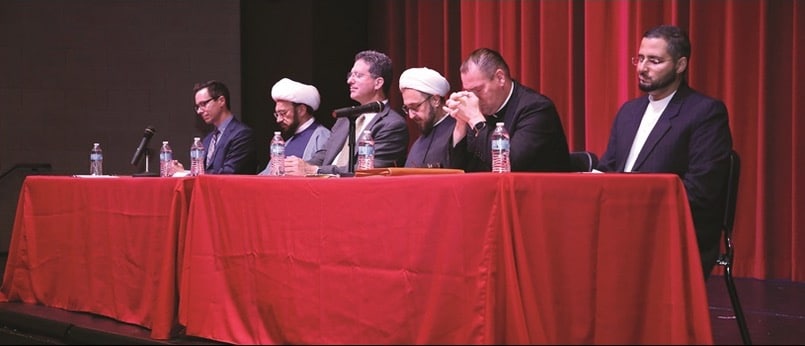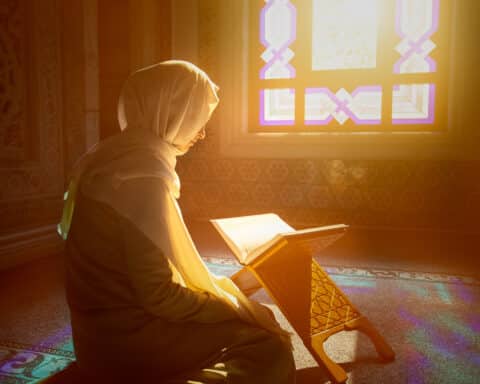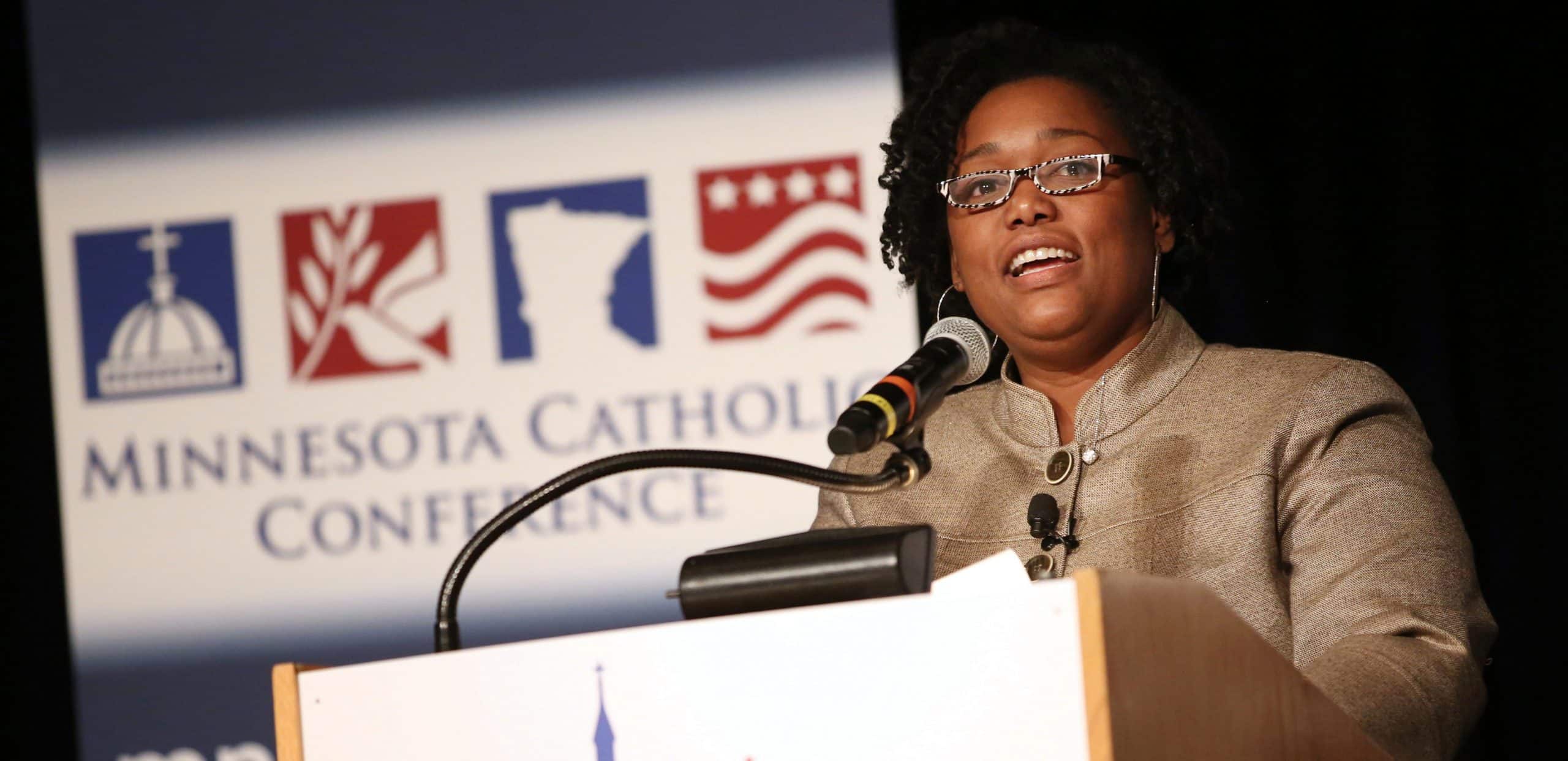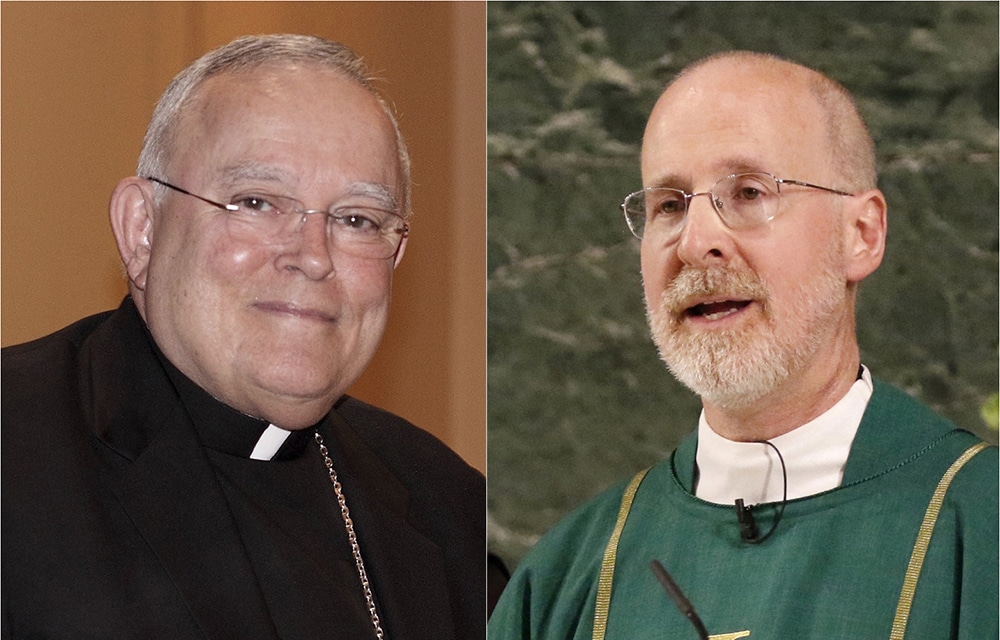In a world where Muslims and Christians can be depicted as clashing or at odds, the two groups have coexisted peacefully for generations in Dearborn, Michigan. It has the largest and most diverse Arab community in the United States, making up more than 30 percent of the city’s 94,000 residents, although not all are Muslim. They came in waves beginning in the late 1880s, when Christians left Lebanon for freedom and jobs. Palestinian Muslims, Catholic Chaldeans from Iraq, Yemenis and refugees fleeing conflict in the Middle East have been added.
In the neighborhood of Divine Child Catholic Church, it is pretty evenly mixed with Catholics and Muslims living next door to one another. It is here that the event “Sharing Our Lives: A Muslim-Catholic dialogue for greater understanding,” took place on the evening of Sept. 24. The event was presented in partnership with the Archdiocese of Detroit, the Detroit Islamic center of America, Islamic House of Wisdom and the Muslim Unity Center.
Three Catholics and three Muslim Imams made up a panel that spoke to an audience of Muslims and Catholics that included: high school students from a world religions class, the mayor of Dearborn Heights, a Saudi Arabian man in traditional dress newly arrived here and an engaged Catholic/Muslim couple.
According to pastor Father Jim Bilot, he and associate pastor Father Matt Hood hosted the event to encourage friendship. Occasionally, Muslims have gone into the church to light a candle or walk through the parish campus, sometimes stopping by the outdoor Marian shrine since both religions honor the Blessed Mother. And every Halloween, some Muslim children trick or treat at the rectory, receiving holy cards along with candy.
Father Bilot opened the event by reading Psalm 8, “O Lord, our Lord, how awesome is your name through all the earth!” He welcomed everyone explaining that the goal was to get to know one another better. “We’re all here together,” he said. “It’s good to understand one another’s culture and faith tradition.” The two-hour-long presentation included questions and answers followed by refreshments.
In interviews with Our Sunday Visitor, presenters explained how forming a bond between faith communities can be an example to the world.
Dialogue of life
“We have a very good relationship between Catholics and Muslims here,” said Msgr. James Kasza, pastor of St. James Catholic Church in Novi and ecumenical and interfaith officer for the Archdiocese of Detroit. “Local Imams have met with Archbishop Vigneron on numerous occasions and it has gone well,” he said. “While many of our neighborhoods have changed populations, those who live together in them seem to have a cordial, friendly relationship.”
Father Kasza explained that clergy from various denominations periodically meet to dialogue. “This fosters an atmosphere of trust,” he said. “While the events of Sept. 11, 2001, were horrific and brought out much xenophobia, as a result of our discussions and interactions, we have built up a good rapport and mutually respect one another.”
Imam Mohammad Almasmary of the Unity Center in Bloomfield Hills said that his community is blessed to have clergy meet once a month including Catholics, Muslim, Jews and Protestants — to speak and listen to one another. “We build understanding,” he said. “I call it ‘multi-faith’ rather than ‘interfaith.’ We want people to come with their own faith, sharing their experiences and come to the table together.”
Imam Almasmary encourages people to get to know one another as people. For instance, he said he wants people to see that he is a husband and father with four children and many interests. “I always tell people, let’s speak about what we have in common,” he said. “Everything we talk about does not have to be about faith.”
Working together
Daniel Keating, professor of theology at Sacred Heart Major Seminary in Detroit, said the two religions coexist more successfully in the United States than in Europe, although he said misunderstands still exist.
“If communities are not just existing together but interacting, it will sustain them through difficulties,” he said. “Smiling and greeting one another is a start. Leaders working together on small projects and gaining trust is a way to advance those relationships.”
He said disagreement should not be hidden but that points of common cause can be built on for the good of communities. These include the defense of traditional marriage, strong families and religious freedom.
Power of prayer
Imam Mohammad Ali Elahi of Islamic House of Wisdom, pointed to the experience of prayer to foster peace and collaboration. “Prayer is fundamental, even for politicians,” he said. “We can see that in Congress with The National Day of Prayer. The government is secular, but no one denies the importance of prayer.”
Prayer is not just a ritual, according to Imam Elahi. “It brings more meaning and purpose to life and teaches our youth this connection to God as the source of peace and tranquility.”
Lives without God and prayer, according to him, are miserable and lead to materialism, selfishness, warmongering, and hatred. He condemned violence and hatred such as we see with ISIS and Christian groups that encourage hatred rather than love. “Prayer should bring humbleness and patience and tolerance, not hatred,” he said.
David Conrad, coordinator of ecumenical and interfaith dialogue for the Archdiocese of Detroit, has been part of a quarterly inter-religious dialogue. “We get together with other denominations to keep the lines of communication open and to be familiar with one another,” he said. When a French Catholic priest was killed by terrorists during Mass in 2016, Conrad said it was touching when Imam Elahi offered condolences.
“We share a common humanity,” Conrad said. “Those areas of commonality are beginning points for deeper conversations.” An example he gave is the practice of fasting to excite the importance of the divine and to spur us on to greater acts of charity. From the start, however, he said the movement towards relationship needs to be colored by the love God has for us. “Otherwise,” he said, “its perhaps philanthropy but it’s not charity.”




